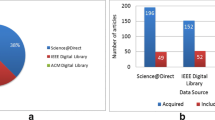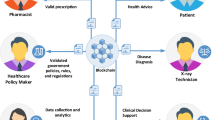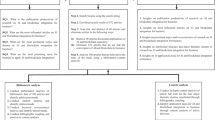Abstract
Decentralized Finance is an alternative form of finance that has no central authority to control or monitor transactions. Decentralized finance can potentially replace traditional elements of a centralized financial system with smart contracts, a set of self-executing code, enabled through a blockchain. The motive behind such a decentralized mechanism is that it creates a trust-free, transparent, and open-source ecosystem where the transactions can be carried out, eliminating intermediaries. Decentralized Finance has gained increased awareness in late 2020, led by platforms such as Uniswap, Maker DAO, Aave, and Curve. The aggregated market capitalization of Decentralized Finance has crossed USD $87B of total value locked as of May 9, 2021. From stablecoins to tokenized Bitcoin, from money lending to borrowing platforms, decentralized finance has grown exponentially. Decentralized Finance has many advantages over the centralized financial system, but it also suffers from many issues such as slow transactions, and unpredictable, sometimes high transaction costs. This has led to the introduction of Hybrid Finance, which is operated by verified entities over a public blockchain system that is proposed to have high transaction speeds, low transaction costs, and Know Your Customer compliance. This case study outlines the details of the collaboration between Acala, a decentralized finance platform built on the Polkadot blockchain, and Current, a New York-based challenger bank that focuses on mobile payments, online banking, and financial services, as they established a new category in the financial technology sector with Hybrid Finance. The major objective of this study is to understand and appreciate the relevance of blockchain technology for enabling a hybrid finance ecosystem that is trust-free and completely decentralized with no intermediaries.

Similar content being viewed by others
References
Hughes A, Park A, Kietzmann J, Archer-Brown C (2019) Beyond Bitcoin: what blockchain and distributed ledger technologies mean for firms. Bus Horiz 62(3):273–281
Abdulhakeem SA, Hu Q (2021) Powered by blockchain technology, DeFi (decentralized finance) strives to increase financial inclusion of the unbanked by reshaping the world financial system. Mod Econ 12(01):1–16
Bose S, Dong G, Simpson A (2019) Decentralized finance. The financial ecosystem. Palgrave Macmillan, Cham
Hewa T, Hu Y, Liyanage M, Kanhare S, Ylianttila M (2021) Survey on blockchain based smart contracts: technical aspects and future research. IEEE Access 9:1–1
Katona T (2021) Decentralized finance: the possibilities of a blockchain “money lego” system. Financ Econ Rev 20(1):74–102
Qian Y, Jiang Y, Chen J, Zhang Y, Song J, Zhou M, Pustišek M (2018) Towards decentralized IoT security enhancement: a blockchain approach. Comput Electr Eng 72:266–273
Gupta Y, Shorey R, Kulkarni D, Tew J (2018) The applicability of blockchain in the Internet of Things. In: 2018 10th International conference on communication systems & networks (COMSNETS). IEEE, pp 561–564
Jensen JR, von Wachter V, Ross O (2021) An introduction to decentralized finance (DeFi). Complex Syst Informat Model Q 26:46–54
Werner SM, Perez D, Gudgeon L, Klages-Mundt A, Harz D, Knottenbelt WJ (2021) Sok: decentralized finance (defi). arXiv preprint arXiv:2101.08778
Schär F (2021) Decentralized finance: on blockchain and smart contract-based financial markets. FRB of St. Louis Review
Chohan UW (2021) Decentralized finance (DeFi): an emergent alternative financial architecture. Critical Blockchain Research Initiative (CBRI) working papers
Qin K, Zhou L, Afonin Y, Lazzaretti L, Gervais A (2021) CeFi vs. DeFi—comparing centralized to decentralized finance. arXiv preprint arXiv:2106.08157
Gudgeon L, Perez D, Harz D, Livshits B, Gervais A (2020) The decentralized financial crisis. arXiv preprint arXiv:2002.08099
Harwick C, Caton J (2020). What’s holding back blockchain finance? On the possibility of decentralized autonomous finance. Q Rev Econ Financ
Chen Y, Bellavitis C (2019) Decentralized finance: Blockchain technology and the quest for an open financial system. Stevens Institute of Technology School of Business Research Paper
Zetzsche DA, Arner DW, Buckley RP (2020) Decentralized finance. J Financ Regul 6(2):172–203
Wood G (2016) Polkadot: vision for a heterogeneous multi-chain framework. White Paper
Lin C, Zhang ZW (2020) A two-tier blockchain architecture for the digital transformation of multilateralism. In: 2020 IEEE 91st vehicular technology conference (VTC2020-Spring). IEEE, pp 1–5
Filippova E, Scharl A, Filippov P (2019) Blockchain: an empirical investigation of its scope for improvement. In: International conference on blockchain, pp 1–17
Batubara FR, Ubacht J, Janssen M (2018) Challenges of blockchain technology adoption for e-government: a systematic literature review. In Proceedings of the 19th annual international conference on digital government research: governance in the data age, pp 1–9
Chen A. Acala: the decentralized financial network for stablecoin and staking liquidity. Whitepaper. https://github.com/AcalaNetwork/Acala-white-paper/blob/master/Acala_Whitepaper.pdf. Accessed 13 Dec 2021
Cai CW (2018) Disruption of financial intermediation by FinTech: a review on crowdfunding and blockchain. Account Financ 58(4):965–992
Chen A. Acala token economy working paper. Whitepaper. https://github.com/AcalaNetwork/Acala-white-paper/blob/master/Acala_Token_Economy_Paper.pdf. Accessed 13 Dec 2021
Acknowledgements
The authors would like to thank Ruitao Su, Co-founder of Acala, for his agreement in working with us in the creation of this case study. The authors would also like to thank the Polkadot, Acala team, and Trevor Marshall from Current for sharing the HyFi interview information from the annual Polkadot Decoded conference.
Funding
No funding was received for conducting this study.
Author information
Authors and Affiliations
Corresponding author
Rights and permissions
About this article
Cite this article
Anoop, V.S., Goldston, J. Decentralized finance to hybrid finance through blockchain: a case-study of acala and current. J BANK FINANC TECHNOL 6, 109–115 (2022). https://doi.org/10.1007/s42786-022-00041-0
Received:
Accepted:
Published:
Issue Date:
DOI: https://doi.org/10.1007/s42786-022-00041-0




